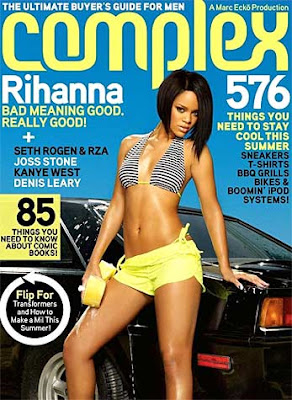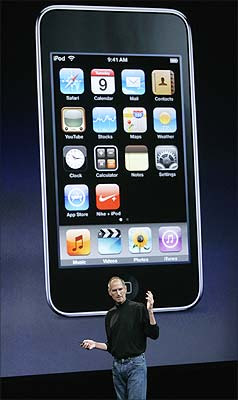
Rochelle Wiseman

hot nayantara

Megan Fox

Anushka


Rochelle Wiseman

Perhaps start by experimenting with dim lighting - candlelight can be very flattering, says Rowan Pelling
Rowan Pelling's sex advice column: 'I won't make love with the light on'
http://www.dailymail.co.uk/femail/article-1165716/Rowan-Pellings-sex-advice-column-I-wont-make-love-light-on.html



holly_madison



Jordan

Katie_Price

Kim_Kardashian

Marisa Miller




Marisa Miller

Kim Kardashian

Marisa Miller

Sheela

Marisa Miller

Alessandra Ambrosio

Izabel Goulart

Izabel Goulart

Izabel Goulart

Nayantara

Nayantara

Shriya

Halle Berry

Kareena Kapoor

Jennifer Aniston

Jessica Alba

Jessic Biel

Nayantara

Nayantara

Angelina Jolie

Cindy-Crawford

Jessica Alba

Natalia Vodianova

doetzen kroes

doetzen kroes

doetzen kroes

doetzen-kroes

Kim Kardashian

Esha

doutzen-kroes

Gemma Arterton

Cindy Crawford

MELON has the same effect as Viagra, scientists discovered recently.
The juicy fruit is packed with citrulline, a compound that relaxes blood vessels – just like the famous blue pills — researchers at the North Carolina State University have found.
Blokes have always known that a nice pair of melons can work magic when it comes to their libido.
But that’s not the only way the resemblance between food and body parts can bolster our health.
Here are some other ways the shape, colour and structure of everyday foods are linked with healthy lifestyles.

Genelia

Vinyl release for Girls Aloud

Semi Naked Demi is Ashton's Display Pic!
Ashton Kutcher posts a semi-naked picture of Demi Moore on Twitter.com.

Namitha BIG boobs

Anushka in Billa




Deepika Padukone

Christina Milian

spicy Priyamani

spicy Namitha

spicy Koena Mitra

spicy Neetu chandra

spicy Preity Zinta

spicy priyanka chopra

spicy Kaveri Jha

spicy Namitha

Megan Fox





Sada

Sada

Sada

Priyanka Chopra




Neetu Chandra

Neetu Chandra

Neetu Chandra

Neetu Chandra

Teri Hatcher
Program helps babies beat obesity odds
http://www.msnbc.msn.com/id/29719156/

Nicollette Sheridan

1237386156.jpg)
1237386156.jpg)
1237386156.jpg)
1237386156.jpg)
1237386156.jpg)
Mumaith Khan hot and sexy
Heart-Healthy Recipes
http://search.yahoo.com/search?p=Heart-Healthy+Recipes&cs=bz&fr=fp-buzzmod
5 Horrifying Tales Of 911 Incompetence
http://www.cracked.com/article_17150_5-horrifying-tales-911-incompetence.html
A drink a day could cut heart attack risk!
http://www.hindustantimes.com/StoryPage/StoryPage.aspx?sectionName=HomePage-mostpop
ular&id=d8f2adb1-a7b8-4d75-8bf5-d70bd26d918c&Headline=A+drink+a+day+could+cut+heart
+attack+risk!
Hot slide show
http://www.thesun.co.uk/sol/homepage/features/article2152951.ece




Asin




Charmee

Beyonce

Sexy Kylie Minogue

vanessa_minnillo

Jessica Taylor

vanessa_minnillo

Hot butt: Piers and Jay-Z discussed Beyonce's most famed attribute

vanessa_minnillo bikini



Anna Kournikova

Kangana Ranaut

Ileana

Amber Le Bon

Halle Berry

Tyra Banks

Rihanna

Bipasha Basu

Sania Mirza

World renowned management guru C K Prahalad.
Success tips from world's top management guru
http://specials.rediff.com/money/2009/jan/15slide1-success-strategies-from-worlds-top-management-guru.htm
He's the world's most influential living management guru and the first Indian-born to be so honoured.
Which is why, in these troubled economic times, when countries are slipping into recession, companies are going bankrupt, CEOs are taking pay cuts and pink slips are the norm, it makes sense to take Coimbatore Krishnan Prahalad's sage words of advice.
To know more, read on...
# Strategy is about stretching limited resources to fit ambitious aspirations.
# Management is a lot of blocking and tackling.
# Many companies don't understand yet that outsourcing isn't about exporting jobs. It's about importing innovation.
# You have to have faith. You cannot lead if you don't believe.
# The technology eliminated the tyranny of the few over the many.
# Invest time in languages and intercultural awareness. Focus on becoming part of the global citizenry. In exchange for the opportunity to participate everywhere/ anywhere in the world, you have the obligation to do something productive which will improve the world. Develop a personal mission, a desire to leave personal legacy.
# You cannot solve the world's problems in a small company. The goal is not to say that we are going to do it anyway, with or without money. It's a nice, brave thing to say, but very soon you'll be running out of cash.
# The negative side of a small company is that there are no dampers. Just because you can make a change quickly, the temptation is to act. Speed is nice to have, but going faster to hell is not how I want to run a company. I want somebody to keep pushing the organisation. I also want somebody to say, 'Let's be thoughtful about getting this done right.'
# It is the bamboo that bends in heavy winds that has another day to live. The trees that don't bend get uprooted.
# If you do precisely what you're supposed to do, and you're boxed in, then you're going to do that very well. But if pressed to do things that aren't in your normal job description, the challenge can push you to a new level of achievement.
# If you want new ideas, you have to push yourself into the periphery.
# How many senior executives discuss the crucial distinction between competitive strategy at the level of a business and competitive strategy at the level of an entire company?
# Especially in troubled times, leaders must behave like emotional and intellectual anchors. You must steady the organisation and have a passionate belief that what you are doing is important.
# Leadership is about what you do when the going gets tough� The critical issue is about faith, passion, and, most importantly, authenticity -- so that people know you are not pretending. People can see a sham."
# I spend a lot of time talking about what we're doing in terms of strategy. You have to give the same message over and over again.
# Consumption can and does increase income. Consider health care. If you are legally blind with cataract, you can't work and neither can the family member who cares for you. But if you get access to inexpensive cataract surgery, now you can see and both of you can work. Have you consumed eye surgery or increased the family's earning power? You've done both. It's two sides to the same coin.
# In an organisation, one unique person makes a difference, but you need teamwork to make it happen.
# In a company like ours, if we want to do something, we can just call a meeting. But in a small company, you have to exercise caution and build your own personal dampers so that you don't act on everything. Sometimes not acting may be smart. But if I get the feeling that everybody's becoming so thoughtful that nobody's doing anything, I want to go and light some fires somewhere.
# If you are a good manager, you always worry about your competitors. To take the competitors for granted is a mindset of a closed economy. Nobody in the open market takes anybody lightly.
# Leaders do not allow themselves to be weighed down by the difficulties of the present but are focused on the possibilities of the future. Instinct, passion, courage and confidence are the precious ingredients of managing differently. A vision of the future is critical to motivate people to become innovative.
# Being anchored in reality and taking small steps towards that vision is equally critical. We have to learn to look at the stars and count the grains of sand at the same time.
# Any company that cannot imagine the future won't be around to enjoy it.
# Managing differently calls for a major revolution in the way we perceive our own roles as managers. The biggest transition that needs to be made is to move away from managing to leading, from administration to entrepreneurship.
# Whether it is quality levels, logistics, costs, scale, working capital management, or capital efficiency, there is no room for the second best. Good is not good enough anymore.
# If you want to understand how the future is being created, you have to understand how decisions get made, how people allocate resources, how choices get made.
# Why don't people have economic opportunities? Because there's no information. You don't know what the price of fish is in the next village. The large-company Internet business models, the Internet poor, the new business models -- they're one big circle. They all interact with one another. But we have to make this a business issue.
# A commitment to lead in the creation of new opportunities -- an opportunity-led management system -- is critical. Most often, managers change in reaction to a crisis or a problem, not in search of opportunities
# People are intelligent enough to know what they are getting and not getting.
# The greater the angst of sales and marketing managers over the decision to sell core products to outsiders, the more likely it is that the firm's in-house channels are less efficient than alternate distribution channels
# How to distinguish non-core capabilities from core competence? In the broadest terms, a company many have 40 or more primary skills, but only 5-15 core competencies. Senior management has to focus on which competencies are at the centre of their business.
# Excitement is manifested strategically by employees seeing how their jobs link up with attainment of a goal. The new strategic intent presents a challenge, and engages employees' intellectual energy. Like Ford did in the early 1980s with its quality campaign, managers must make every employee aware that without their help, the company will not regain or increase its competitiveness.
# Companies that create the future do more than satisfy customers, they constantly amaze them.
# Beyond reengineering a firm, top managers must know how to reengineer their entire industries, a la CNN, Wal-Mart, and Service Corporation International. Pathbreakers all, they recognized their core competencies and developed strategies to reshape industry structures around their competitive competencies.
# Rebuild leadership before you need to.
# Business must start with the assumption that consumers don't want to apply the same amount of effort to construct all their experiences. Today, I will take whatever coffee I'm given -- but on another occasion, I might be more particular.
# Management must be performance oriented. Meritocracy, stretch targets, clear measurements and rewards based on contribution are the keys to a high performance culture.
# We have company think, not consumer think. What we make is not what they want.
# People shift their priorities, where they want to customise, where they want to invest their energy and expertise.
# If you build systems for total participation and co-creation, buying off-the-shelf is a sub-set and is also possible. If you only build a system for what's available and what you make, then people cannot co-create.
# Over time successful business recipes become dull -- your success leads to business structures that may become dysfunctional. What we need to ask ourselves is -- is there a different way?
# To be extraordinarily sensitive and concerned about key competitors, especially those who have more experience and technology capabilities, is not a wise thing to do. I think we have to distinguish between being respectful and being concerned about competitors.
# At headquarters, managers are focused on the markets already being served, not the potential markets of the future. When this happens, the company is hostage to existing markets, even though it may possess highly-evolved core competencies which can be leveraged for the future.
# By creating a mismatch between aspirations (more) and resources (less) you create entrepreneurship. Entrepreneurs leverage resources and change the business model to get more, for fewer resources. So the task for us is, how to create aspirations that rest outside the current resource base
# You have to have faith: otherwise, every time there's a minor problem in the implementation, you'll change direction. Just because you are going north, doesn't mean it's going to go in a straight line.
# Start with clear specifications and a clear idea of gaps by auditing your own internal structure. Then create small internal experiments to move one step at a time rather than turning everything upside down.
# Consumers did not have much share of voice. Now they do. There is a fundamental transition that is taking place -- from a firm-centric society to a consumer-centric society.
# Creating a new market is key... not to create new needs for these consumers, but to find new ways to sell the same products and services in an innovative way
# It's a question of taking a lot of small steps: don't try to eat the elephant in one big bite.
# The social architecture -- the mindset of managers -- must change. You cannot procrastinate. People must be empowered to act. Real time action requires a managerial mind-set. It also requires distributed leadership -- a shared agenda commonly understood, but access to information at very distributed levels.
# Everyone should act in a way that's consistent with the broad philosophy of the company, so you enhance your brand, you enhance the experience of consumers.

iPod constantly looks to enhance the experience of its customers. Apple Inc CEO Steve Jobs shows off a thinner iPod Touch.

Katrina Darrell, 20, wore as little as possible to the Phoenix auditions, and not surprisingly, was sent on to Hollywood.


Salma Hayek

Megan Fox
Megan Fox Says She Wants Salma Hayek's Chest (foxnews)

Shilpa Shetty

Kelly Brook

Rachel Greene



ALEXANDRA BURKE and fellow star RUTH LORENZO in bikinis.

Tiffany

alizecornet




Kingfisher swimsuit calendar 2009 girls
The new(s) boom
http://indiatoday.digitaltoday.in/index.php?option=com_content&task=view&issueid=87&id=24006§ionid=20&secid=17&Itemid=1
After the Mumbai blasts, apart from the defence forces, another unlikely hero emerged. That was the media. The tireless and courageous reporting by some of the journalists had the entire nation hooked to the TV for three days.
This would have certainly spawned a million aspirants around the country. However, the terrible events, which on one hand, highlighted the competency of some reporters, also exposed glaring insensitivity in some others.
Such attacks underscore the need for not only trained journalists, but also thinking ones. “If you are not the thinking and logical sort of a person, then media is not for you,” states Vir Sanghvi, advisory editorial director, Hindustan Times.
Right frame: Photojournalism is becoming a popular career option.
Right frame: Photojournalism is becoming a popular career option.
A study conducted by FICCI-PWC established that the Indian media and entertainment industry, currently pegged at Rs 35,300 crore, is likely to witness a compounded annual growth rate of 19 per cent to touch Rs 83,740 crore. The print media is likely to increase to Rs 19,500 crore by 2010 whereas television will be the fastest growing.
“The best way to prepare oneself for this industry,” says M.J. Akbar, Chairman, Covert, “is to develop domain knowledge in subjects like history, political science, economics and finance. “We need people with knowledge and understanding, not just typing skills,” he adds.
There are media schools mushrooming all over the country, and joining one for a basic training does make sense as recruiters do not prefer vanilla graduates these days. Time and resource constriants have limited on-the -job training that used to take place earlier.
“The ideal thing to do is to go to a reputed media school and then join a good news channel. A school should be able to teach systems, technology, writing to picture and identifying a news story,” explains Rajdeep Sardesai, Editor-in-chief, IBN NETWORK.
But most experts warn against joining a mediocre journalism school. “Join only credible institutes as most of the mediocre ones are no more than teaching shops,” says Akbar.
In this age of multimedia, the future belongs to those who can adapt and shift from one medium to another. Each medium has its own set of unique advantages. Television is the fastest growing segment and provides a good mix of fame and money.
Radio, on the other hand, enjoys an omnipresence that television lacks. Print journalism commands a respectability that is second to none. And “Internet is,” as Sangitika Nigam, National Academic Head, WLC College puts it, “the cutting edge area in media which requires not just reporting skills but proficiency with technology.”
For a reporter in print, a degree or a diploma in print journalism is desirable. On the other hand, designers would need page-making skills. Often, reporters are required to design their own pages as well as edit their own copy.









ana ivanovic hot and sexy sizzling





Ana Ivanovic


Curvaceous Beyonce spotted sunbathing in a bikini

wow!


Kelly Brook



kelly brook





kelly brook





kelly brook





kelly brook










Kelly Brook
On the look for Kelly Brook?
Millions of readers have used our super search engine this year to find their dream girl.
Beauties like Kelly Brook, Cheryl Cole and Katie Price are among the US's favourites.
But the most-popular girl might raise a few eyebrows.
Let's just say it's her first No1 for a while and her hits probably don't have that much to do with her looks of late.

No comments:
Post a Comment